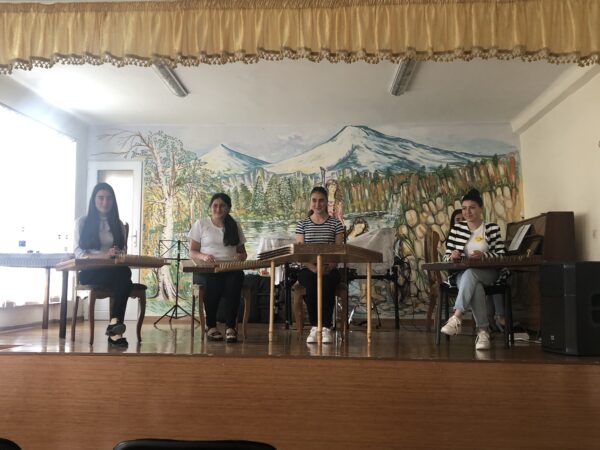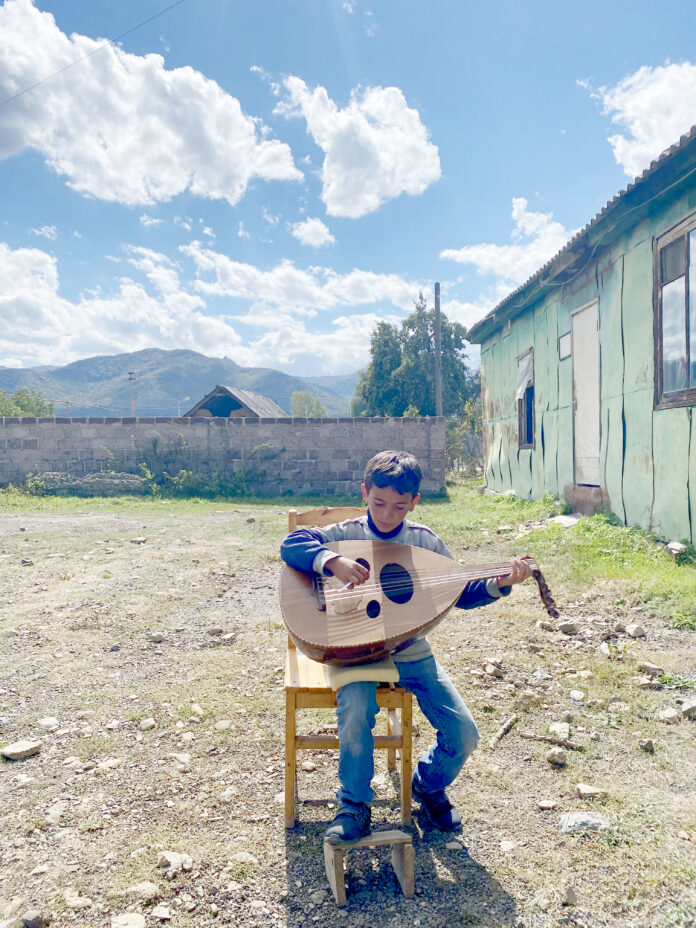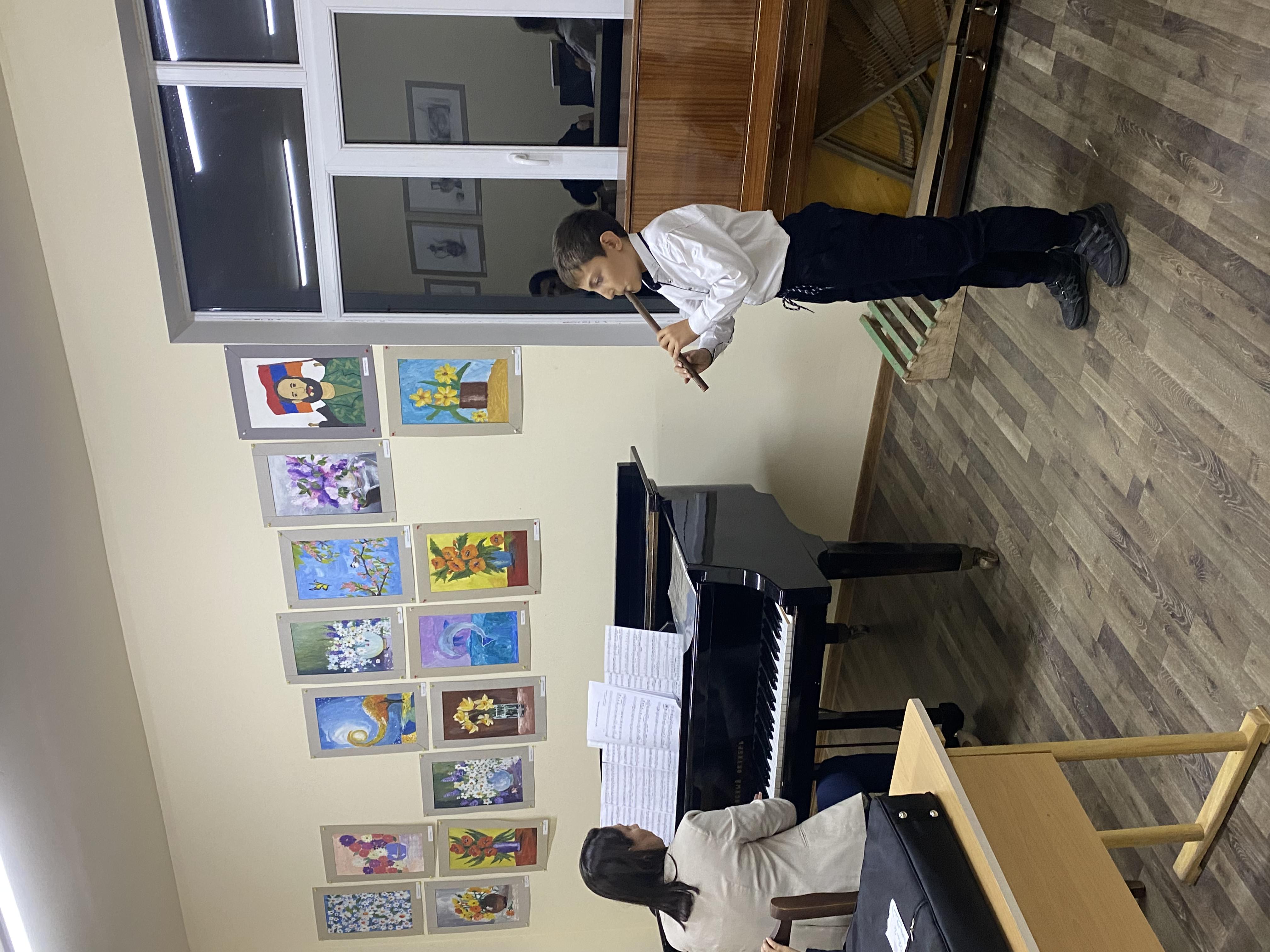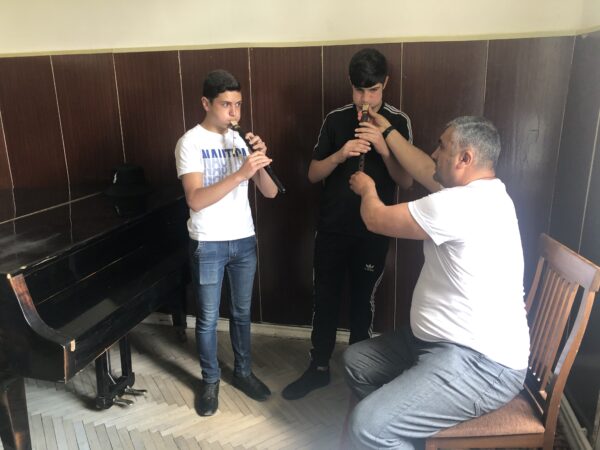YEREVAN — “Do whatever you can, without waiting for the perfect time.” This is the motto of the Musical Instruments for Armenia (MIFA), a grassroots charity initiative that aims to tackle the scarcity and lack of access to musical instruments for children in remote regions of Armenia and Artsakh.
What began as an ordinary discussion on Clubhouse social audio network now has turned into an ambitious idea that has fueled a group of Armenian enthusiasts from different parts of the world to roll up their sleeves and bring positive changes.
Music producer and DJ Hayk Harutyunyan and violinist Mariam Vardanyan explained the goals of MIFA, its impact, and future endeavors.
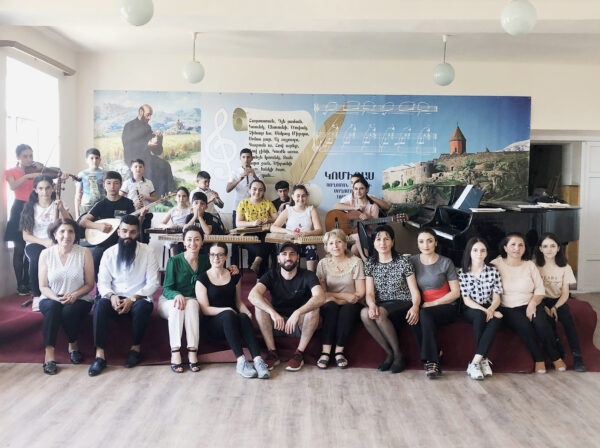
The core MIFA team, composed of Hayk Harutyunyan, Mariam Vardanyan, Roseanna Kegeyan and Natalya Ghurbanyan, got to know each other via the Clubhouse social audio network in December 2020, soon after the end of the 44-Day War. In one of the most popular Clubhouse audio rooms, titled “Armenia,” compatriots were discussing the means and methods to do something beneficial for Armenia. “While in Germany, I was thinking about how I could help my country and came up with the idea of eliminating the scarcity of musical instruments in Armenia and Artsakh so that children could learn pure Armenian music rather than rabiz (popular music) melodies,” Vardanyan said.
The idea was supported by Harutyunyan, Vardanyan, Kegeyan, Ghurbanyan and other participants in the Clubhouse, who joined in the effort to launch the very first fundraiser for MIFA through the Clubhouse to kickstart the initiative. Later, MIFA organized charity concerts and events both in Armenia and the United States to spread the word about the impact it is making in children’s lives throughout Armenia and Artsakh. This generated a lot of support from renowned Armenian musicians, including Vahagn Hayrapetyan, Garik Papoyan, and Soné Silver, as well as from a well-regarded Armenian radio host and showman Gor Grigoryan (Glumov). “There are schools where children wait for their turn to play an instrument of their choice. We started to visit villages and collect necessary data and register what children’s needs were, which instruments were more in demand, etc.,” recalled Harutyunyan.
